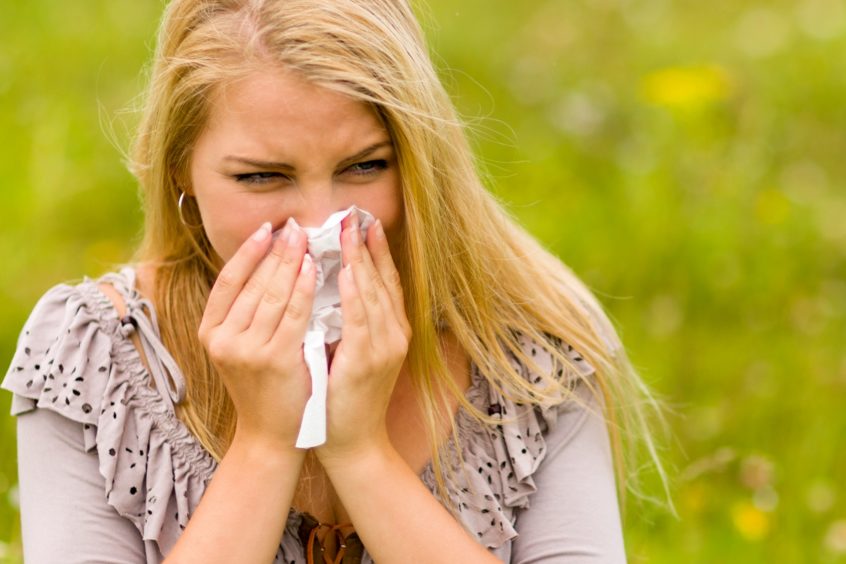After what seems like never ending rain, everyone is eager for the spring. People can’t wait to go hiking, plant gardens and enjoy their backyards again. But there’s a side effect to spring, and it’s seasonal allergies.
During spring, with all its pollen, ragweed, flowers, and other plants, seasonal allergies can be just as ubiquitous as farmer’s markets, and then some. Seasonal allergies are literally a huge headache. Most people think of the common runny nose and itchy eyes, but there are many more significant oral health impacts, also.
Dry and Drippy Mouth
The most obvious impact of allergies is the sore throat. Scratchy throats, coughing and hoarseness abound during most of the allergy season. This is commonly accompanied by the following symptoms:
Post-nasal drip irritates the sensitive areas of the throat and causes sharp, biting pain after swallowing. Patients report the post-nasal drip as the worst during nighttime, when their body sleeps horizontally and is less inclined to drain well.
Dry mouth means that there is less fluid moistening or soothing the area called the mucosa of your throat. The outcome of this means a dry, itchy, and scratchy feeling for your throat.
Inflammation from seasonal allergies is an inflammatory response throughout the body, including your throat. As your body fights the pollen antigens throughout the atmosphere, your throat will swell slightly or appear red and sore. This is a natural process for the inflammation cycle, as well as quite an unfortunate one.
Congestion and the Teeth
Allergies cause congestion, so while it’s not always taking place in the mouth, surprisingly, congestion can affect your teeth in a negative way. Congestion takes place throughout your sinuses as the body launches a defense response to allergens. Within the skin and throughout the face, there are several sinuses, located slightly above your upper molars. When they get congested, these sinuses will press on the upper nerves of your teeth, creating temperature sensitivity, dull pain, or even sharp aching. If you’re suffering from sinus-related toothaches, an antihistamine frequently succeeds in alleviating the issues. If pain continues, you should contact your dentist.
Dry Mouth
As mentioned before, a significant symptom of seasonal allergies is dry mouth. Dry mouth can cause a lot more than just sore throat. Many dental health problems can result from dry mouth, which is why it should be taken seriously. There are several different points to know when dealing with dry mouth, but by far one of the more common causes is medication. Most people take pharmaceuticals to combat allergy issues, and frequently one symptom is reduced saliva creation. Why is this an issue? Saliva protects the gums and mouth in many ways; the washing away of food particles, killing unwanted bacteria, and by delivering the minerals needed for repairing broken dental enamel. Lack of saliva can cause many gum diseases, cavities, and halitosis. If you notice dry mouth occurring mostly in the spring season, it may be wise to schedule an appointment with your dentist.
The good news is that allergies don’t last forever. Many people report that allergy symptoms last between two and four weeks. If your allergies are causing severe symptoms, such as the ones mentioned above, it’s worth a visit to your dentist to ensure that your oral health isn’t being jeopardized.

